Hoe begin je een bedrijf in biologisch afbreekbaar tafelgerei:groothandel, maatwerk en zakelijke diensten

Naarmate de bezorgdheid over het milieu toeneemt en de regelgeving voor plastic voor eenmalig gebruik wordt aangescherpt, is de vraag naar milieuvriendelijke alternatieven enorm gestegen. Biologisch afbreekbaar servies - producten gemaakt van materialen zoals suikerrietbagasse, bamboe, tarwezemelen en biologisch afbreekbaar bioplastic - biedt een duurzaam alternatief dat zowel milieubewuste bedrijven als consumenten aanspreekt. Deze blogpost biedt een gedetailleerd stappenplan voor ondernemers [...]
Is maïsbestek biologisch afbreekbaar en composteerbaar?
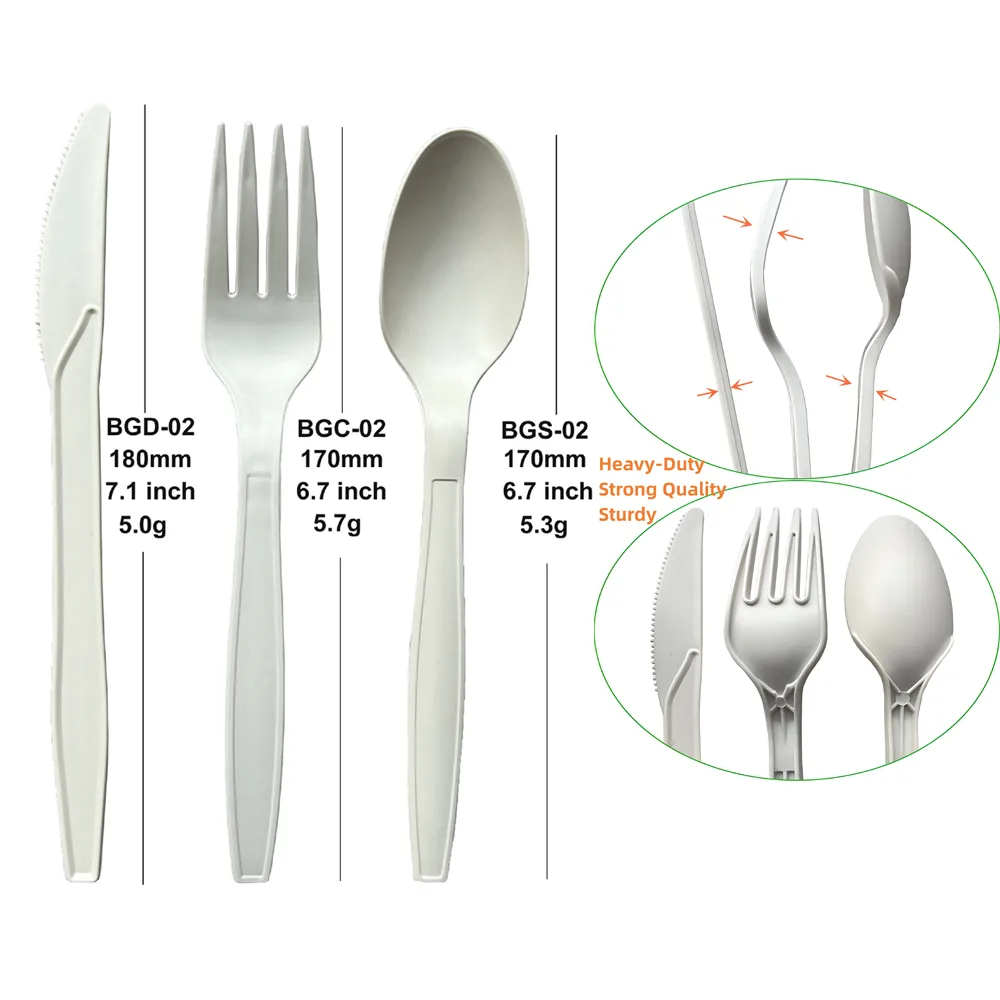
De wereldwijde beweging naar duurzaamheid heeft geleid tot innovatie in milieuvriendelijke producten, waaronder biologisch afbreekbare en composteerbare alternatieven voor het traditionele plastic bestek. Bestek op basis van maïszetmeel heeft aan populariteit gewonnen vanwege de vermeende voordelen voor het milieu. Maar zijn ze echt biologisch afbreekbaar en composteerbaar? Dit artikel onderzoekt de wetenschap achter maïszetmeelbestek, de verschillen met CPLA-alternatieven en de impact op duurzaamheid. [...]
Het verschil tussen maïszetmeel en suikerrietzakassepulp serviesgoed

Servies van maïszetmeel en suikerrietpulp is een gemakkelijk te gebruiken materiaal dat plastic kan vervangen en tegelijkertijd biologisch afbreekbaar is. Maïszetmeel en suikerrietpulp worden op grote schaal gebruikt zodra ze een duurzaam alternatief bieden voor plastic dat neutraal is voor de aarde.
De belangrijkste verschillen tussen maïs en plastic servies

In recent years, the global push towards sustainability has led to the development and adopting of various eco-friendly alternatives to traditional plastic products. Among these, cornstarch-based tableware has emerged as a popular choice. But how does it compare to conventional plastic tableware? This blog delves into the key differences between cornstarch and plastic tableware, exploring […]
Is maïs servies echt composteerbaar?

In recent years, the environmental impact of single-use plastics has become a significant concern, leading to the development of alternative materials such as cornstarch-based tableware. These products are marketed as eco-friendly and compostable solutions, but how effective are they in practice? This article delves into cornstarch tableware’s composition, benefits, and limitations to assess its true […]
Maïs servies: Het milieuvriendelijke alternatief dat je nodig hebt
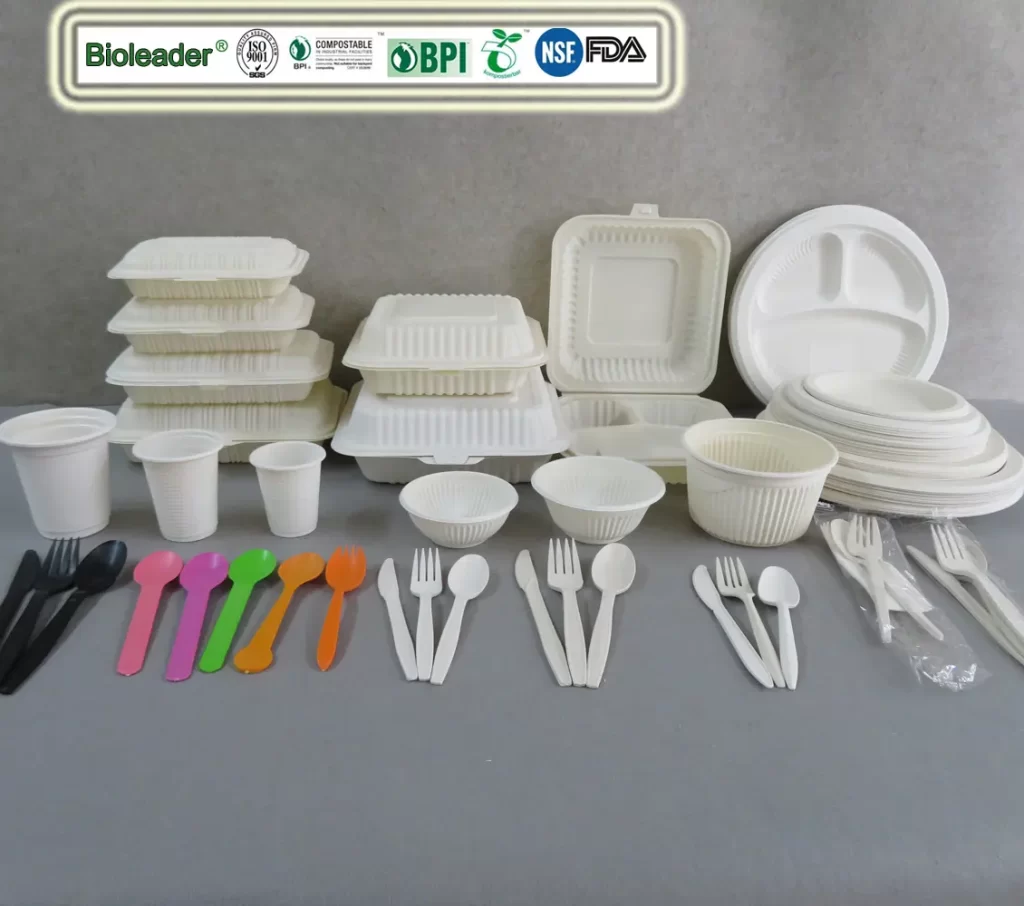
Maïszetmeel serviesgoed heeft zich ontpopt als een veelbelovend milieuvriendelijk alternatief in een wereld die zich steeds meer richt op duurzaamheid en het verkleinen van de ecologische voetafdruk. Het is gemaakt van hernieuwbare grondstoffen en biedt een praktische oplossing voor de milieuproblemen die traditionele plastic producten met zich meebrengen. Deze blog onderzoekt de voordelen, het productieproces en het potentieel om de eetindustrie te transformeren. Wat is maïszetmeel [...]
Het productieproces van maïszetmeeltafelgerei

Maïszetmeel serviesgoed heeft zich ontpopt als een milieuvriendelijk alternatief voor plastic producten en wint aan populariteit vanwege de biologische afbreekbaarheid en duurzaamheid. Inzicht in het productieproces laat zien waarom het zowel een milieubewuste als praktische keuze is. In deze blog gaan we stap voor stap in op het productieproces van maïszetmeel servies en de gevolgen ervan voor het milieu. Wat is maïszetmeel servies? [...]
Biodegradable Tableware: Detailed Questions and Answers
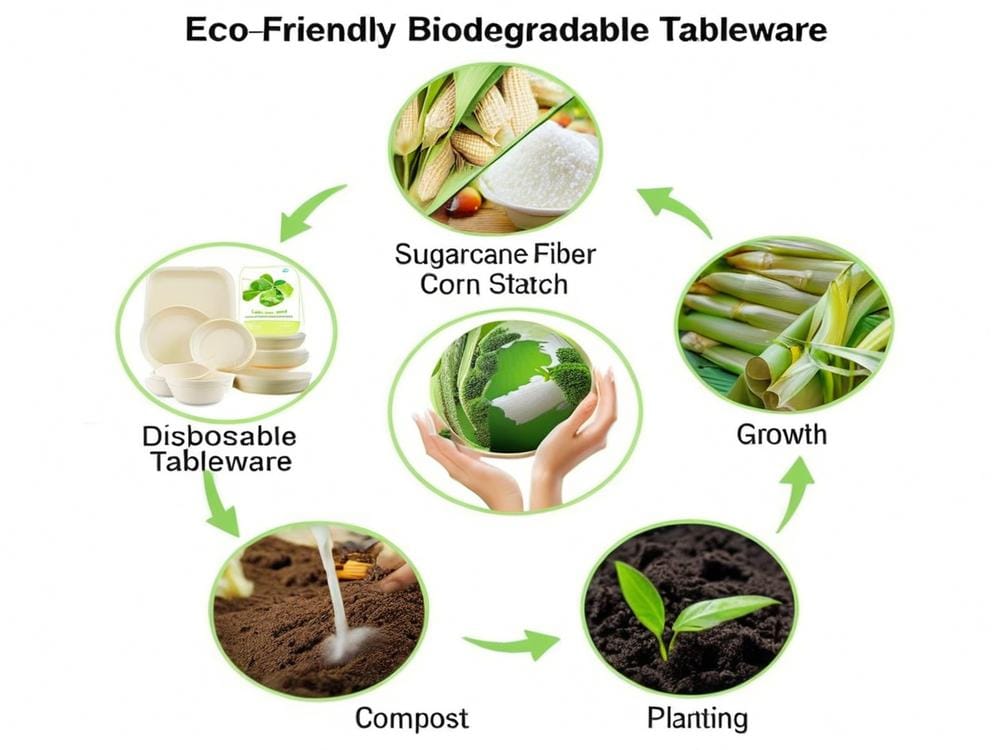
Biodegradable tableware, made from materials like sugarcane bagasse and cornstarch, decomposes naturally without harmful residues. It’s eco-friendly, durable, and heat-resistant, ideal for reducing plastic waste. While some items can decompose in home compost, others require industrial facilities. Though slightly more expensive than plastic, it supports sustainability and reduces environmental impact, making it a practical solution […]
Are Restaurant Takeout to Go Container Boxes Microwave Safe?

Explores the microwave safety of various restaurant takeout to go container materials, including plastic, paper, biodegradable options, and Styrofoam. It provides practical tips for safe usage, recommends eco-friendly alternatives, and highlights potential risks to health and safety when reheating food in non-microwave-safe containers.
8 Different Kinds of Materials Used in Eco-Friendly Disposable Tableware
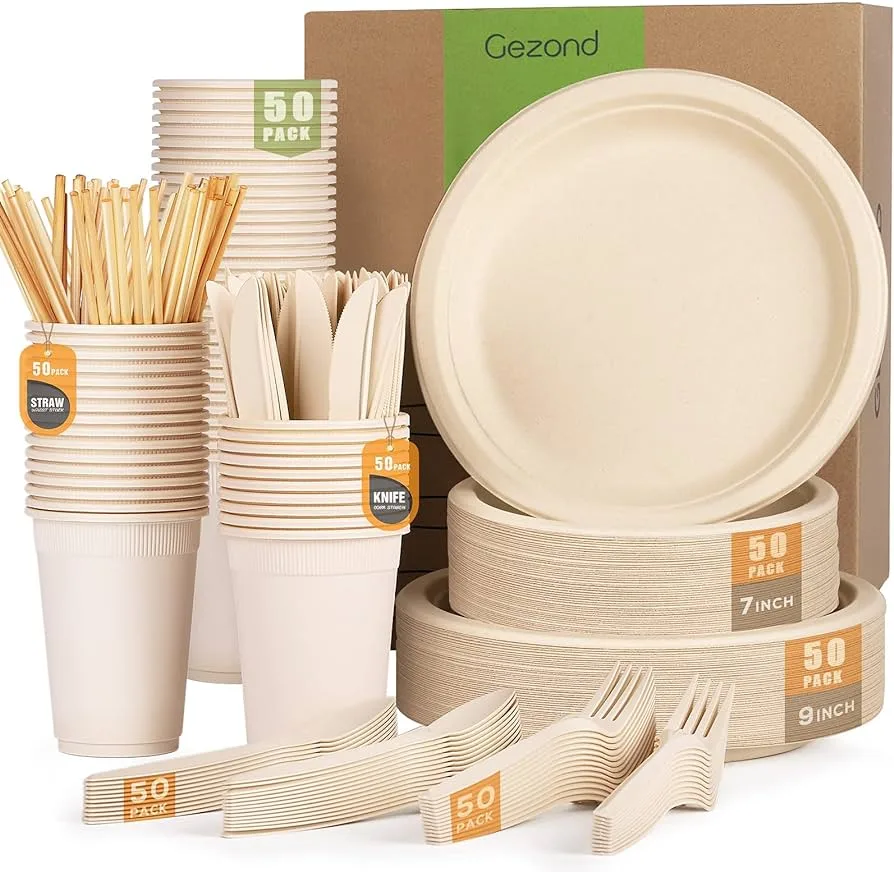
There are 8 different kinds of eco-friendly disposable tableware materials, including Bagasse, PLA, CPLA, Cornstarch, Paper, PET, PP, and PS. The guide details their characteristics, advantages, limitations, and applications, highlighting sustainable alternatives like biodegradable and compostable materials while also addressing recyclable options. The guide aims to help businesses and consumers make informed choices that align with environmental goals.
Wat zijn de soorten biologisch afbreekbaar servies en wat zijn hun kenmerken?
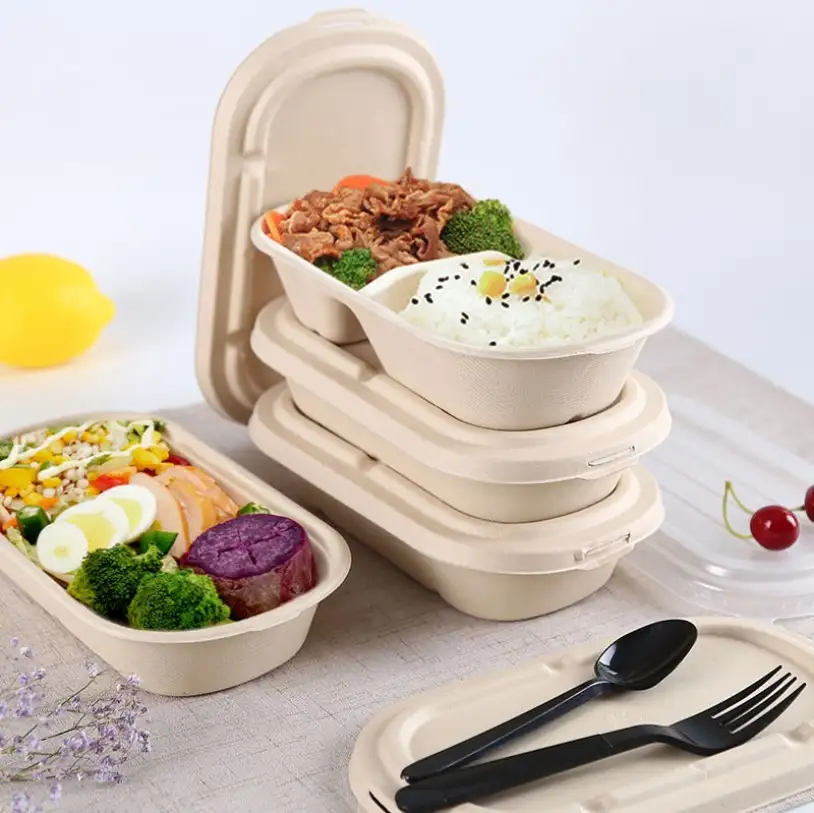
Biodegradable tableware refers to utensils that can naturally decompose under certain conditions after use, helping to reduce environmental pollution and the problem of plastic waste. Here are some common types of biodegradable tableware and their characteristics: Pulp Molding Tableware Explore the process of pulp molding, from the selection of raw materials to the molding and […]
